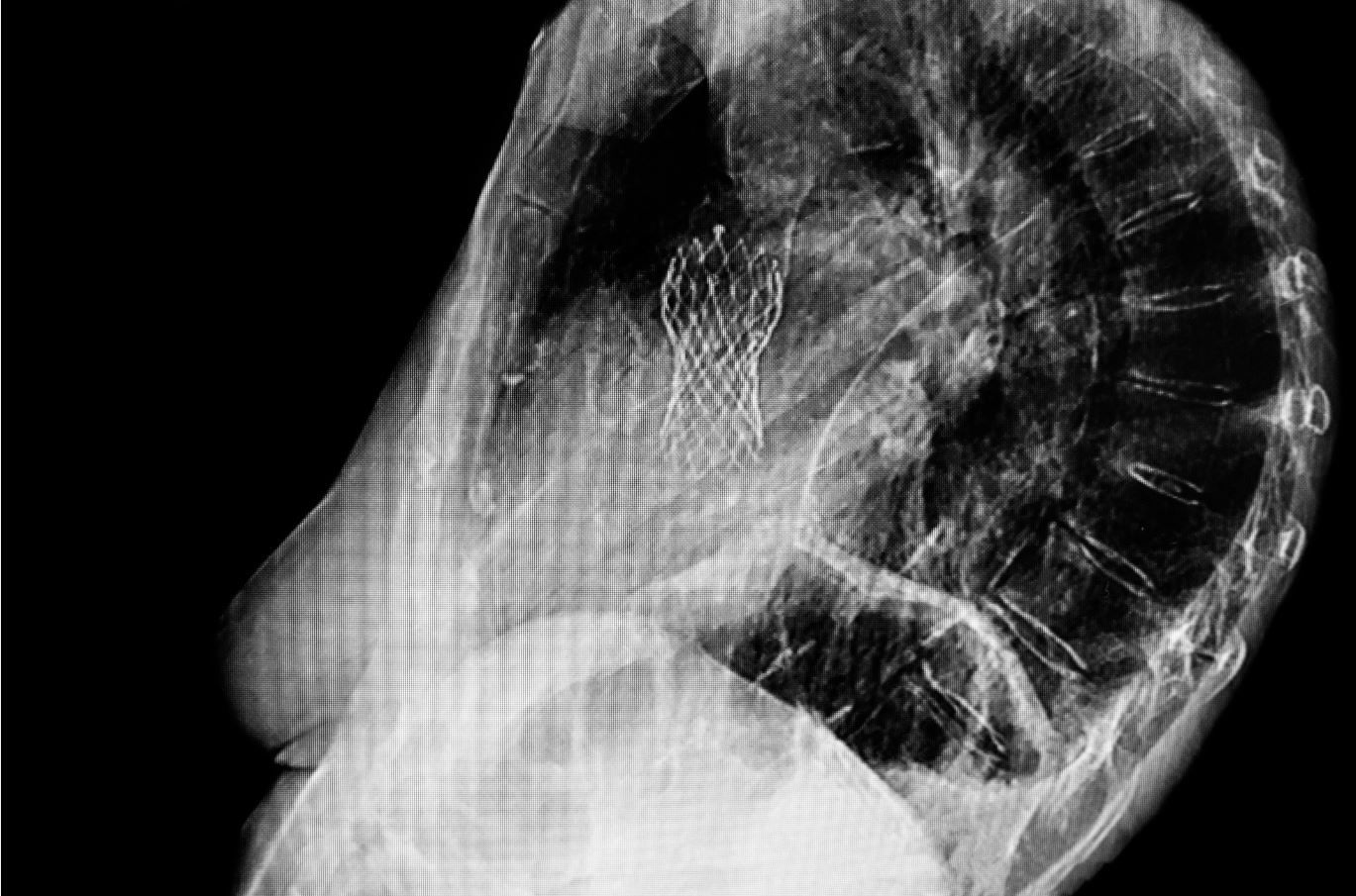- Clinical Technology
- Adult Immunization
- Hepatology
- Pediatric Immunization
- Screening
- Psychiatry
- Allergy
- Women's Health
- Cardiology
- Pediatrics
- Dermatology
- Endocrinology
- Pain Management
- Gastroenterology
- Infectious Disease
- Obesity Medicine
- Rheumatology
- Nephrology
- Neurology
- Pulmonology
GALILEO: Rivaroxaban Caused Harm after TAVR
AHA Scientific Sessions 2019: Post-TAVR use of rivaroxaban is not recommended for routine use among patients with no indication for anticoagulation.
Lateral checst x-ray showing aortic valve replacement done through a femoral artery. ©DOUGLAS/stock.adobe.com)

Routine use of rivaroxaban after transcatheter aortic valve replacement (TAVR) is not recommended for routine application among patients with no specific indication for anticoagulation, according to the results of the GALILEO study presented on Saturday, November 16, 2019, at the AHA Scientific Sessions 2019 in Philadelphia, PA and published simultaneously in the New England Journal of Medicine.
Study findings were presented in Philadelphia by George Dangas, MD, PhD, Professor of Medicine at the Mount Sinai School of Medicine and Director of Cardiovascular Innovation at the Zena and Michael A. Weiner Cardiovascular Institute of the Mount Sinai Medical Center in New York City.
GALILEO is the first randomized trial designed designed to evaluate the safety and efficacy of a rivaroxaban-based strategy compared with an antiplatelet strategy in patients after TAVR who had no ongoing indication for oral anticoagulation.
The trial included 1,644 patients who were randomly assigned to receive:
- Rivaroxaban 10 mg once daily plus aspirin once daily for 90 days followed by rivaroxaban alone, or
- Clopidogrel plus aspirin for 90 days followed by aspirin alone
In August 2018, the trial was stopped early by the Data and Safety Monitoring Board when more complications were seen with rivaroxaban compared with clopidogrel.
Assignment to rivaroxaban was associated with a higher risk of death or thromboembolic events and bleeding compared with clopidogrel plus aspirin. For the final efficacy endpoint of time to death, stroke, myocardial infarction, symptomatic valve thrombosis, pulmonary embolism deep vein thrombosis or systemic embolism, there were 105 events in the rivaroxaban arm compared with 78 events for the antiplatelet arm (HR=1.35; 95% CI, 1.01-1.81; P=.04).
Outcomes were also worse for rivaroxaban for all-cause mortality (HR=1.69; 95% CI, 1.13-2.53; P=.009) compared with antiplatelet strategy. However, there was no significant difference for the composite safety endpoint of major, disabling or life-threatening bleeding events (HR=1.50; 95% CI, 0.95-2.37; P=.08).
According to the AHA’s in-depth coverage of the trial, “the higher number of deaths observed could not be directly attributed to the higher bleeding in the rivaroxaban arm. Among patients randomized to rivaroxaban who died, only a minority developed a significant bleeding event, heart attack, or stroke within 30 days prior to death.”
“…the higher number of deaths observed could not be directly attributed to the higher bleeding in the rivaroxaban arm…”
As presented in Dr. Dangas’ slides, “the mechanisms underlying the higher mortality in the rivaroxaban arm observed in the intention-to-treat analysis in this trial is unclear. The mortality rate differences were attenuated in the on-treatment analysis and occurred late after discontinuation of study drug.”
Discussant Elaine M. Hylek, MD, MPH, of Boston University School of Medicine, explained that the optimal antithrombotic strategy post-TAVR is still unknown, and that the risk of stroke remains high early and late post-TAVR despite antiplatelet therapy.
Based on the GALILEO results, the scientific community will have to await results of other trials in the TAVR population.
Source: Dangas G, et al. Global comparison of a rivaroxaban-based antithrombotic strategy versus antiplatelet strategy after transcatheter aortic valve replacement to optimize clinical outcomes (GALILEO) trial: Primary results. Presented at American Heart Association Scientific Sessions; Nov. 16, 2019.
